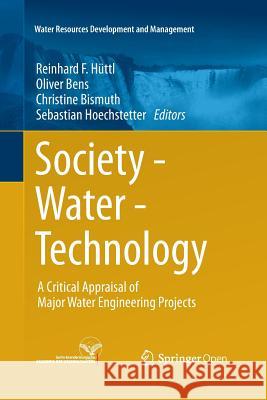Society - Water - Technology: A Critical Appraisal of Major Water Engineering Projects » książka
topmenu
Society - Water - Technology: A Critical Appraisal of Major Water Engineering Projects
ISBN-13: 9783319372679 / Angielski / Miękka / 2016 / 295 str.
Kategorie:
Kategorie BISAC:
Wydawca:
Springer
Seria wydawnicza:
Język:
Angielski
ISBN-13:
9783319372679
Rok wydania:
2016
Wydanie:
Softcover Repri
Ilość stron:
295
Waga:
0.44 kg
Wymiary:
23.39 x 15.6 x 1.68
Oprawa:
Miękka
Wolumenów:
01
Dodatkowe informacje:
Wydanie ilustrowane











